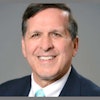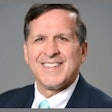
"Groundhog Day," an American movie classic from 1993, is a story of television weatherman Phil Connors (played by Bill Murray) who gets caught in a time loop while covering the Punxsutawney Phil groundhog event. In the movie, Connors awakes to discover he is reliving the same day again and again. He only exits the loop only when he changes his ways.
If you were stuck in such a time loop, what would you need to change before being let out? Would you need to change the insane hours you keep? Would you need to start seeing your family more? Would you need to change your practice's level of production each month? Or would it be something else?
Here's another question: How would your story end if you don't change?
3 ways to embrace change
 Jen Butler, MEd.
Jen Butler, MEd.Change just doesn't feel uncomfortable. Neurological research has shown that the brain perceives change as a threat. Your brain tells you to resist and refuse change at all costs. Your brain is essentially trying to convince you that your situation, mental state, money issues, relationship struggles are all normal and "just part of doing dentistry."
What happens when you resist change like Phil Connors did initially? You stay in the same pattern of being stuck, overwhelmed, losing money, fracturing relationships, and more. Which leads to another question: What are you getting out of not changing?
You can combat your brains deception and resistance of change by doing the following:
1. Know your choices
We all have choices we can make that change the directions of our experiences or alters the results of our current reality. Some of those choices might be difficult to execute, and even more difficult to swallow, but that doesn't mean they aren't there. Nothing will be as costly as what would happen if nothing changed.
2. Be humble
“How would your story end if you don't change?”
Pride is a killer of change management. Pride makes you believe you know it all, don't need anyone, can do it on your own, and that you're smart so you should be able to figure it out for yourself. Recognize this thought process as the ego putting up barriers to change. Yes, you're smart in what you know, but your results clearly highlight for you what you don't.
3. Stop comparing your life to others
Constantly comparing what you have to what others have can cause a quick spiral into stress, anxiety, depression, and self-defeating decision-making. Dental professionals are conditioned from early in their education to compare themselves to others in the form of school rankings, test scores, monthly production, number of operatories, and on and on.
So how do you take practical action to embrace change?
- Make a list of all the results in your life you are unhappy with (production, collections, weight, intimate moments, seeing kids' ball games).
- Write down on a piece of paper all the choices you can imagine, no matter how dramatic the change or the price tag attached.
- Identify at least one person for each result who could help you get different results.
- Write down the names of the people you envy, wish to emulate, or idealize and reduce the amount of time you follow them on social media. Instead, set up a time and talk directly to them about their story, how they got there, their struggles, what they lost, gained, and gave up. Because anyone that has achieved anything of value to others has done exactly that, and it's important you don't only know their success but their journey to success, what they learned, and how they changed along the way.
Jen Butler, MEd, is the CEO and founder of JB Partners and has been working in the area of stress management and resiliency training for more than 25 years. Learn about her services at www.jenbutlerpartners.com, or contact her at [email protected].
The comments and observations expressed herein do not necessarily reflect the opinions of DrBicuspid.com, nor should they be construed as an endorsement or admonishment of any particular idea, vendor, or organization.


















